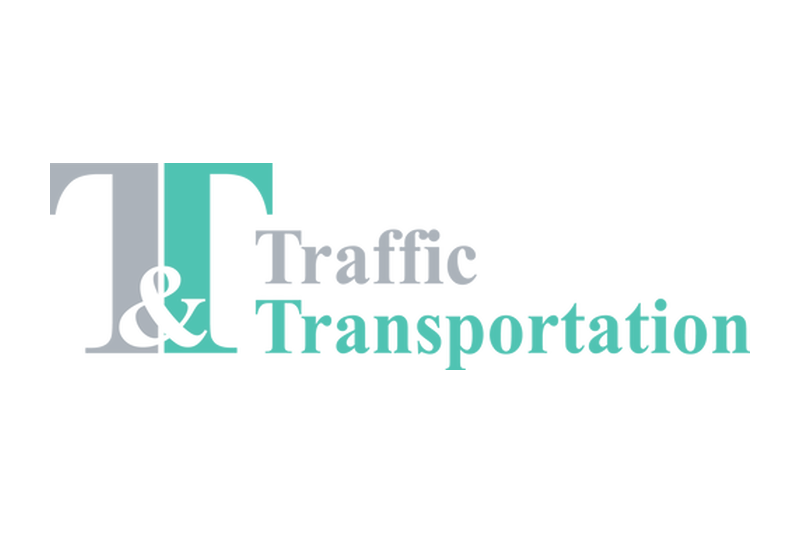The journal adheres to COPE's procedures for addressing potential unethical behavior by authors, reviewers, or editors. More information is available at: https://publicationethics.org
Ethical standards for publication exist to ensure high-quality scientific publications, to foster public confidence in scientific findings, and to guarantee that individuals receive credit for their work and ideas.
All manuscripts are peer-reviewed and are expected to meet academic standards. If the editor agrees, submitted manuscripts will be peer-reviewed by reviewers whose identities will remain anonymous to the authors.
The Editorial Board will occasionally seek advice outside the normal peer review process, for example, on submissions with serious ethical, safety, or societal implications. We may consult experts before deciding on appropriate actions, including but not limited to recruiting reviewers with specific expertise, assessment by additional editors, or declining further review of a submission.
A penalty fee of EUR 500 will be imposed if it is determined that the authors have committed an ethical breach, including but not limited to fabrication and falsification of data, duplicate submissions to another journal, conflicts of interest, improper authorship, or ghostwriting. Authors who wish to appeal these decisions may request a review by our appeals committee, which will thoroughly evaluate the case to ensure fairness and accuracy.
Plagiarism
Authors may not use the words, figures, or ideas of others without acknowledging the source. All sources must be cited when used, and the reuse of phrases must be limited and properly cited or referenced in the text. The Journal utilizes Crossref Similarity Check (iThenticate) and the plagiarism prevention service Turnitin to detect submissions that overlap with published and submitted manuscripts. Manuscripts found to have been plagiarized from another author's manuscript, whether published or unpublished, will be rejected, and authors may be subject to sanctions. Published articles may need to be corrected or retracted.
Duplicate Submission and Redundant Publication
The journal considers only original content, i.e., articles that have not been previously published, even in a language other than English. Articles based on content that has only been published on a preprint server, in an institutional repository, or in a dissertation will be considered. The Journal accepts submissions previously posted on preprint servers, as long as they have not been peer-reviewed. If the paper is accepted, authors must include the full citation and DOI of the published paper on the preprint server.
Manuscripts submitted to the journal may not be submitted elsewhere while they are under consideration and must be withdrawn before being submitted elsewhere. Authors whose articles are simultaneously submitted elsewhere may be subject to sanctions.
If authors have used their own previously published work or work under review as the basis for a submitted manuscript, they must cite the earlier articles and indicate how their submitted manuscript differs from their earlier work. Reuse of the authors' own words should be stated or cited in the text. Reuse of the authors' own illustrations or extensive wording may require permission from the copyright holder, which authors are responsible for obtaining.
The journal will consider extended versions of articles published at conferences, provided this is explained in the cover letter, the earlier version is clearly cited and discussed, there is substantial new content, and all necessary permissions are obtained.
Redundant publication, i.e., inappropriately splitting study results into more than one article (also known as salami slicing), may result in rejection or a request to merge submitted manuscripts and correct published articles. Duplicate publication of the same or a very similar article may result in the later article being withdrawn, and authors may be subject to sanctions.
Citation Manipulation
Authors whose submitted manuscripts contain citations primarily intended to increase the number of citations to a particular author's work or to articles published in a specific journal may be subject to sanctions. Editors and reviewers must not request that authors include citations solely to boost the number of citations to their own work, the work of a colleague, the journal, or another journal with which they are affiliated.
Fabrication and Falsification
Authors of submitted manuscripts or published articles found to have fabricated or falsified results, including manipulation of images, may be subject to sanctions, and published articles may be retracted.
Conflicts of Interest
Conflicts of interest (COIs, also known as 'competing interests') occur when issues external to the research could reasonably be perceived as affecting the neutrality or objectivity of the work or its evaluation. This may be the case at any stage of the research cycle, including the experimental phase, during the writing of a manuscript, or during the process of turning a manuscript into a published article.
If you are unsure, declare a potential interest or discuss it with the editor. Undeclared interests may result in sanctions. Submissions with undeclared conflicts that are later revealed may be rejected. Published articles may need to be re-evaluated, corrected, or, in severe cases, withdrawn.
Conflicts of interest do not always mean that a paper cannot be published or that someone cannot participate in the review process. However, they must be declared. A clear declaration of all possible conflicts—whether or not they actually had an impact—allows others to make informed decisions about the work and the review process.
When conflicts of interest are identified after publication, it can be embarrassing for the authors, the editor, and the journal. It may be necessary to publish a corrigendum or re-evaluate the review process.
Conflicts include the following:
- Financial - Financial contributions and other payments, goods, and services received or expected by the authors in connection with the subject of the paper or from an organization that has an interest in the outcome of the paper.
- Affiliation - Employment by or membership on the advisory board of an organization that has an interest in the outcome of the work.
- Intellectual property - Patents or trademarks owned by someone or their organization.
- Personal - Friends, family, relationships, and other close personal connections.
- Ideology - Beliefs or activism, for example, political or religious, that are relevant to the work.
- Academic - Competitors or individuals whose work is criticised.
Authors
Authors must declare all potential interests, which should explain why these interests might present a conflict. If there are none, authors should declare in the Authorship Statement that there are no conflicts of interest in relation to the publication of the particular article. Submitting authors are responsible for ensuring that co-authors declare their interests.
The involvement of persons other than the authors who 1) have an interest in the outcome of the work, 2) belong to an organisation that has such an interest, or 3) have been employed or paid by a funder, in the commissioning, conception, planning, design, conduct, or analysis of the work, the preparation or editing of the manuscript, or the decision to publish, must be declared.
Declared conflicts of interest will be considered by the editors and reviewers.
Editors and reviewers
Editors and reviewers should decline to contribute to an article if they:
- Have a recent publication or current submission with any of the authors.
- Have or have recently had an affiliation with an author.
- Collaborate or have recently collaborated with an author.
- Have a close personal relationship with an author.
- Have a financial interest in the subject of the paper.
- Do not feel that they are in a position to be objective.
Reviewers must declare any remaining interests in the 'Confidential' section of the review form, which will be considered by the editor.
Editors and reviewers must declare whether they have previously discussed the manuscript with the authors.
Sanctions
When the Editorial Board becomes aware of violations of our Publication Ethics Policy, regardless of whether the violation occurred in the journal, the following sanctions may be imposed:
- Rejection of the manuscript and all other manuscripts submitted by the author(s).
- Prohibition from submission for 1 to 3 years.
- Prohibition from acting as an editor or reviewer
- A penalty fee of EUR 500 if it is determined that the authors have committed an ethical breach
The Editorial Board may impose additional sanctions for serious ethical violations.
Corrections and Retractions
When errors are identified in published articles, the Editorial Board will consider what actions are required and may consult with the authors' editors and institutions.
A correction notice may be published as an Erratum, Correction, Corrigendum, or Author’s Correction.
If there are errors that significantly affect the conclusions or if there is evidence of misconduct, this may necessitate retraction or the expression of concerns in accordance with the COPE Retraction Guidelines.
All authors are requested to agree to the content of the communication.
Appeals
Authors may submit an appeal regarding the editorial process through the Journal's online interface. Appeals must be filed within 8 days of receiving the decision, and must include a detailed justification.
Upon receiving an appeal, the Editor-in-Chief will review it within 10 days. If the appeal is valid, it will be forwarded to the Editorial Board for further consideration. Once a valid appeal is received, the Editorial Board will, within 30 days, appoint a three-member Appeals Committee composed of board members who were not involved in the original decision. The committee will review the appeal and issue a decision within 60 days. The final decision will be communicated to both the authors and the Editorial Board through the Journal's online platform. If the appeal is upheld, the Editorial Board will repeat the process in question.
Complaints
Alleged violations of our publication ethics policy, both pre- and post-publication, as well as concerns about research ethics, should be reported to the editor-in-chief at journal.promet@fpz.unizg.hr. Complainants may choose to remain anonymous if they wish (they can use an anonymous email service).
If a complaint is found to be valid, appropriate actions will be taken, which may include issuing a correction, retraction, or an apology. If the complaint is not upheld, an explanation will be provided to the complainant.


